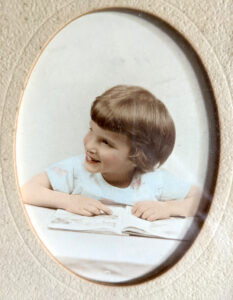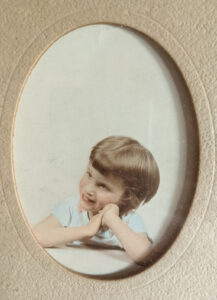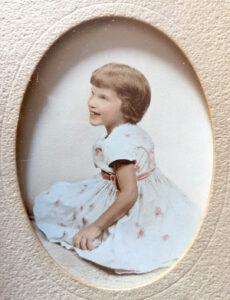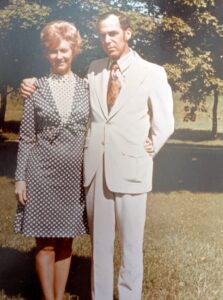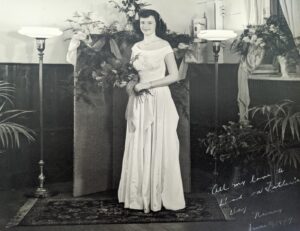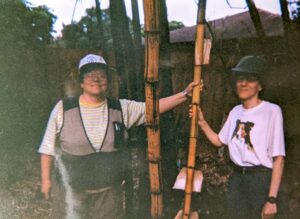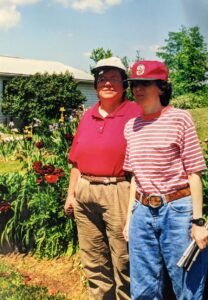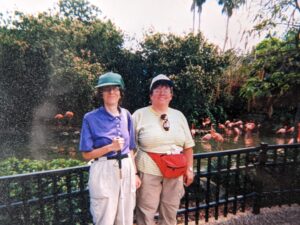In 1952, Kathi Wolfe was born six months premature and legally blind in Southern New Jersey. Since early childhood, she wanted to be a writer – even moving out of a shared bedroom with her talkative brother into the attic to write her stories in peace. Kathi attended school with non-disabled children, where she faced bullying both for her disability and anti-semitism towards her Jewish father. Still, Kathi always had close friends around her and was an energetic child with a love for mischief, movies, and art museums.
While Kathi felt most comfortable around girls and women growing up, she did not identify as lesbian until her senior year in college. After college, she lived in Boston for a year, where she met several queer people in her social circles. When she moved to New Haven to attend Yale Divinity School to study liberation theology, she met even more openly queer people. At Yale, Kathi attended an advanced poetry workshop, where the professor publicly told her that she had no talent for poetry, pushing her towards freelance writing and journalism instead.
Outside of classes, Kathi started attending trainings in New Haven to learn about the nationwide protests fighting for the enactment of Section 504 in the Federal Rehabilitation Act of 1973 that would prohibit employment discrimination based on disability. She learned how to understand and utilize the complaint process within the law to hold federal entities accountable for discriminating against people with disabilities.
Around age 36, Kathi met and fell in love with Anne when they laughed at the same cartoon at a Gary Larson museum exhibit. They had a loving relationship, peppered with funny, heartwarming stories of Kathi’s troubles navigating Anne’s garden. Kathi’s stepmother, Jean, welcomed Anne as family. Kathi’s Aunt Marci and Uncle Ben loved and accepted Anne as Kathi’s partner and expressed their frustrations that the two women couldn’t legally get married. In 2001, Anne passed away from cancer.
After Anne’s death, Kathi began seeing a bereavement counselor and writing poems about grief. As people around her started pointing out her talent, she started attending a writing center in Maryland and was reading her poetry in open mics by 2004. After attending a month-long writer’s colony retreat in Vermont, she started to consider herself a professional poet for the first time.
Since then, Kathi has been writing and sharing her poetry in various cities, exploring themes such as empowerment, disability, and the fluidity of sexuality and gender. Kathi created a much-loved character, Uppity Blind Girl, a blind and queer girl who is unafraid to be out and proud for exactly who she is. The Uppity Blind Girl Poems won the Stonewall Chapbook Competition. Kathi has contributed to the anthologies Beauty is a Verb, The New Poetry of Disability, and the Queer Disability Anthology. In addition to grateful comments from audience members, Kathi has received the Stonewall Prize, the Rosalynn Carter Mental Health Journalism Fellowship, and the Lambda Lit Fellowship, among other accolades. At the end of our interview, Kathi kindly shared some of her writing with us, reading aloud her poems “Blind Spot,” “To-Do List,” “Planet of the Blind,” “What I Wish I Told My Mother,” and “The Voice of Helen Keller.”

